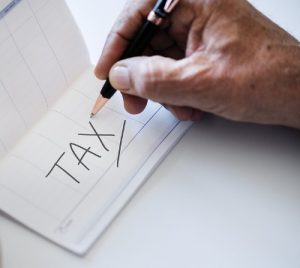
Your des-res might be a gorgeous sea-front apartment overlooking the med, or a rural stone cottage nestled amongst the vineyards of Burgundy, but wherever you live once you are settled, understanding whether you are domiciled, non-domiciled or resident can be a bit confusing. However, clarity is essential: the amount of tax you pay hinges on knowing the difference and the relevance of each status.
Firstly, don\’t just guess your domicile and residency status, because if you get it wrong you could pay too much tax or pay it in the wrong place, and failure to pay can lead to large fines and penalties. Sadly, mis-payments are not tolerated; your tax planning may be well-intentioned, but if you don\’t pay the correct amount of tax in the appropriate jurisdiction, you could be in hot water, so it is vital to get it right.
Generally, we recommend that you speak to a financial adviser working in your local region who will understand the jurisdictional rules applicable to your location and personal situation, but as a brief guide read on and we will explain the fundamentals.
Are you domiciled or non-domiciled?
Your domicile is generally the country you live in permanently or have substantial connection to. If your parents were domiciled in the UK when you were born, then, in most cases, the UK will be your domicile of origin.
If you move abroad permanently and cut ties in the UK, then your domicile may change, but only if you take specific action in your new country of domicile.
If you have moved abroad, but still have significant ties to the UK, such as family, property, income from pensions etc, then you are likely to still be a UK domicile, but with foreign residency.
What is a non-dom?
People living in the UK whose domicile is outside Great Britain are non-domiciled or non-dom and they may not have to pay UK tax on income from their domicile country or other foreign income.
And what about residency?
If you live abroad in a single country for 183 days or more in one tax year you could be considered resident in that country for tax purposes. For example, the authorities in France will consider you to be a resident for tax purposes if one of the following applies:
- Your main home is in France.
- You spend more than 183 days in France during the course of the tax year.
- You spend more days in France than any other country.
- France is your main place of economic activity.
The UK\’s statutory residence test (SRT) can help you establish your residency status.
To work out if you are a UK tax resident, the SRT provides several assessments or tests – the automatic UK residence tests, the automatic overseas residence tests and, if these don\’t establish your residency, the sufficient ties test, which could be used to establish your status as a UK resident.
Tax planning advice for expats
In our experience, tax planning and foreign tax obligations are one of the things that keeps expats awake at night. Trying to work out what your requirements are and how your domicile and residency statuses affect how much and where you should pay can be quite an issue.
Talk to Blacktower today. Many of our financial advisers are expats themselves and understand your concerns completely. From our branches across Europe and in Grand Cayman, USA and the UK, we can provide you with expert local knowledge to ensure you are fulfilling your tax obligations while making the most of relevant allowances and tax treaties.
